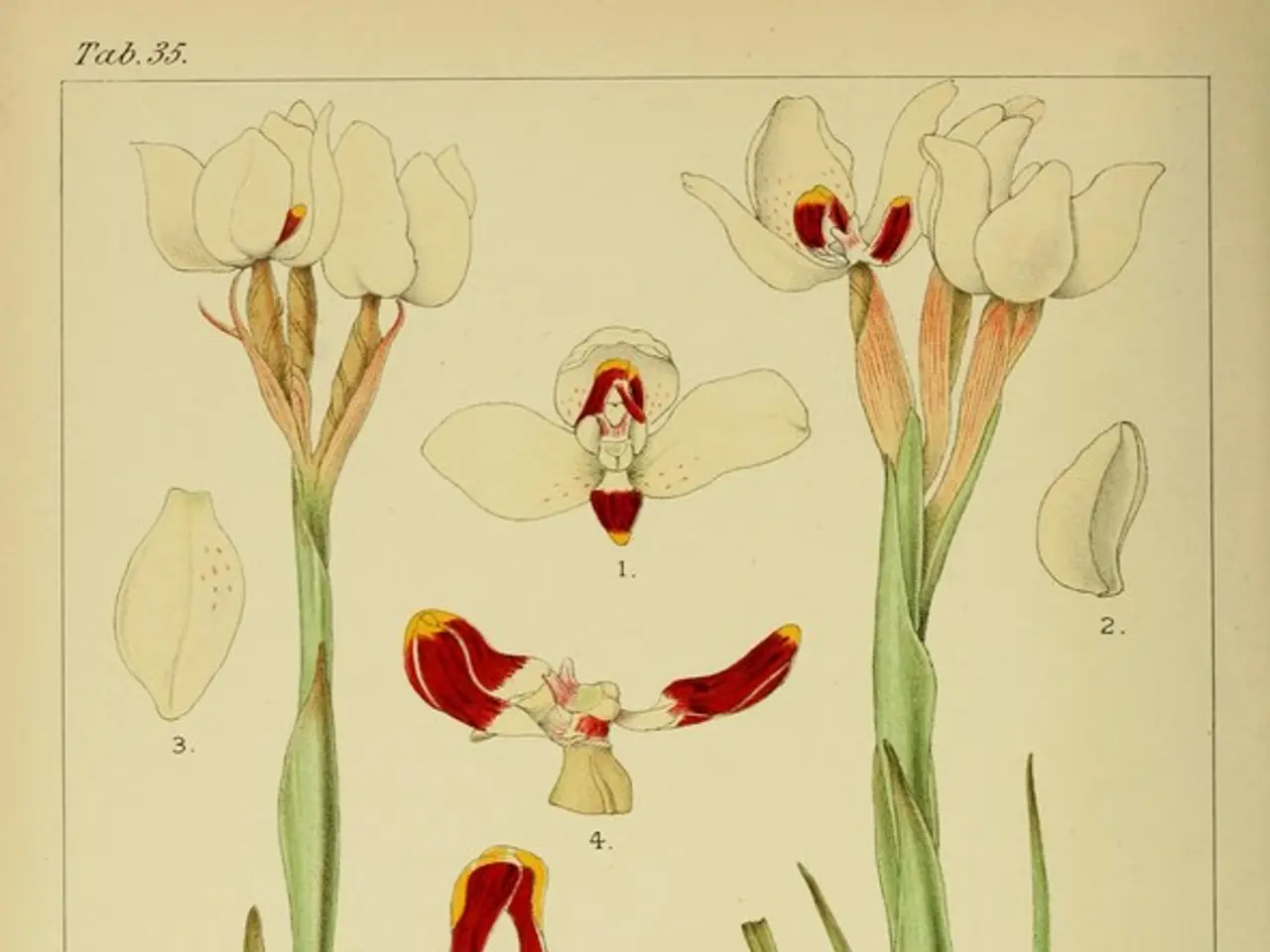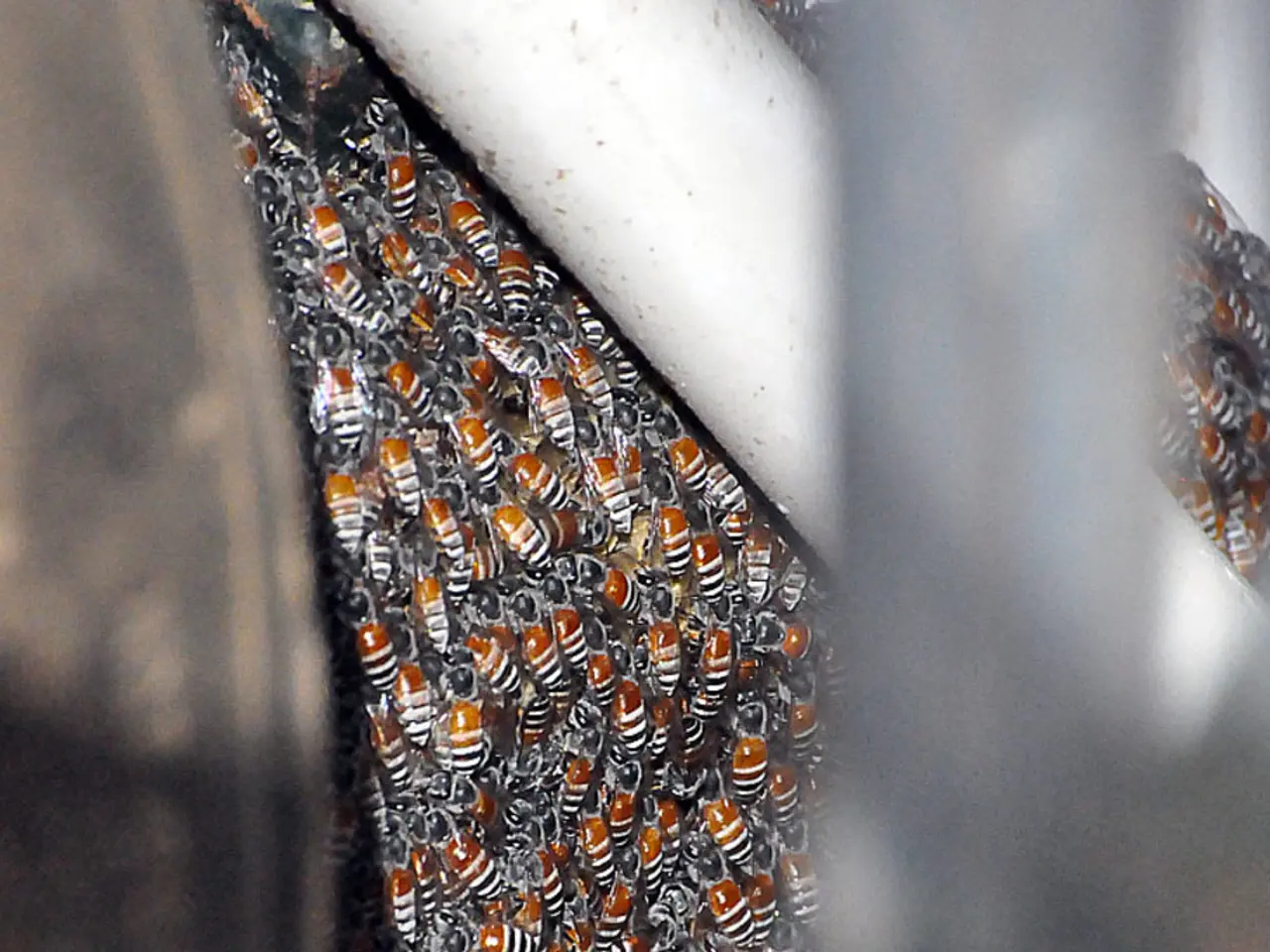Sales of New Energy Vehicles (NEV) by BYD in July dropped to the same level as the previous year, with Plug-in Hybrid Electric Vehicles (PHEV) continuing to wane.
In July 2025, Chinese automaker BYD saw a mixed performance in its new energy vehicle (NEV) sales. While battery electric vehicles (BEVs) continued to perform well, with a year-on-year growth of 36.8%, the plug-in hybrid electric vehicles (PHEVs) experienced a decline for the fourth consecutive month [1][2][3].
BYD sold 177,887 passenger BEVs in July, a drop of 14.02% from the previous month. This contrasts with the PHEV segment, where sales fell by 4.5% to 163,143 units [2][3]. The decline in PHEV sales is noteworthy, as it occurred despite significant discounts and the introduction of 10 new plug-in hybrid models [1].
The overall NEV sales for BYD in July increased slightly year-on-year by about 0.5% to over 344,000 units. However, this figure represents a decrease of approximately 10% from June, primarily due to the slump in PHEV sales [2][3]. This downturn in PHEV sales has put a noticeable slowdown in the growth momentum of BYD's NEV sales, with flat year-on-year sales in July after months of rapid expansion.
The market shift is evident, with a clear preference for pure electric vehicles (BEVs) over hybrids. To counteract this trend, BYD is focusing on improving the fuel efficiency of its hybrid technology through software updates [5].
In a bid to attract a wider customer base, BYD launched a lower-priced variant of the Yuan Up without smart driving capabilities [6]. This move is part of BYD's strategy to cater to the growing demand for affordable electric vehicles.
Despite the challenges, BYD remains China's second-largest power battery manufacturer and has made significant strides in its power battery and energy storage battery installations, with about 156.876 GWh installed in January-July, marking a 76.12% year-on-year increase [7]. The company's overseas NEV sales also saw a surge, with a year-on-year growth of 133.49% to 545,003 units in January-July [8].
In the first seven months of the year, BYD sold 2,490,250 NEVs, a 27.35% year-on-year increase [9]. The company's passenger NEV sales in this period were 2,454,301 units, a 25.99% year-on-year increase, with passenger BEVs accounting for a larger share of sales compared to PHEVs [2][3].
In commercial NEVs, BYD sold 35,949 units in January-July, a staggering 384.36% year-on-year increase [10]. The company ceased production and sales of vehicles powered solely by internal combustion engines in March 2022 [11].
BYD's NEVs include both passenger vehicles and commercial vehicles, making it a significant player in the global electric vehicle market. As the company continues to innovate and adapt to market trends, it remains poised for continued growth in the future.
References: [1] https://www.reuters.com/business/autos-transportation/byd-says-plug-in-hybrid-electric-vehicle-sales-decline-four-months-2021-09-27/ [2] https://www.electrive.com/2022/08/04/byd-sells-344296-electric-vehicles-in-july-bev-sales-down-14-from-june/ [3] https://www.electricvehicles.com/byd-sells-344-296-vehicles-in-july-down-10-from-june/ [4] https://www.autonews.com/international/byd-sales-slump-plug-hybrid-vehicles-amid-growing-demand-battery-electric-cars [5] https://www.reuters.com/business/autos-transportation/byd-to-improve-fuel-efficiency-hybrid-technology-software-updates-2021-09-27/ [6] https://www.carscoops.com/2021/09/byd-launches-lower-priced-yuan-up-without-smart-driving-capabilities/ [7] https://www.byd.com/en-us/about-us/news/byd-announces-first-half-2021-results-with-record-revenue-and-profits-and-record-power-battery-and-energy-storage-battery-installations/ [8] https://www.byd.com/en-us/about-us/news/byd-reports-record-first-half-2021-results-with-over-545000-units-of-nevs-sold-overseas/ [9] https://www.byd.com/en-us/about-us/news/byd-reports-record-first-half-2021-results-with-over-2490000-units-of-nevs-sold-worldwide/ [10] https://www.byd.com/en-us/about-us/news/byd-reports-record-first-half-2021-results-with-over-36000-units-of-commercial-nevs-sold/ [11] https://www.reuters.com/business/autos-transportation/byd-stops-selling-gasoline-powered-vehicles-china-2022-02-28/
- In the same month of July 2025, Chinese automaker BYD witnessed a disparity in the sales of its battery electric vehicles (BEVs) and plug-in hybrid electric vehicles (PHEVs).
- Battery electric vehicle (BEV) sales experienced a year-on-year growth of 36.8%, but the PHEV segment endured a consecutive fourth month of decline.
- Despite offering discounts and introducing ten new plug-in hybrid models, the decline in PHEV sales persisted, impacting the overall sales figure for BYD.
- In contrast to the PHEV segment, BYD sold 177,887 BEVs in July, marking a decrease of 14.02% compared to the previous month.
- The decrease in BEV sales is noteworthy, given the clear preference for pure electric vehicles (BEVs) over hybrids in the market.
- In an attempt to cater to the growing demand for affordable electric vehicles, BYD launched a lower-priced variant of the Yuan Up without smart driving capabilities.
- BYD remains China's second-largest power battery manufacturer, with about 156.876 GWh of power battery and energy storage battery installations in the first seven months of the year, marking a significant year-on-year increase.
- In addition to its passenger vehicle sales, BYD's commercial NEV sales surged, with a staggering 384.36% year-on-year increase in the same period, demonstrating its position as a significant player in the global electric vehicle market.




